A journey of ecological regeneration and learning in Maharashtra, India
Por Patrichia D’cruze
Wholesome food, abundant clean water, fresh air, comfortable homes, peaceful surroundings, natural ambience, supportive relationships, and creative fulfilling work are all basic human needs. How to meet them in harmony with nature and fellow humans remains the core challenge of our churning times. This is why it is important for urban youth to learn afresh from the forest and nature. Even mainstream universities and institutions will need to address this challenge, sooner rather than later.
Vanvadi Forestversity began as a collective initiative in ecological regeneration. The seeds of this venture were sown long before the land at Vanvadi, clear-felled of trees a year earlier, was purchased in 1994, largely from two big land-owning families. For four years prior to that, a group of passionate individuals, motivated by the ideals of sustainability and natural living, had searched for the right piece of land where they could give shape to their vision. The quest culminated in the acquisition of 65 acres of land, but the journey toward co-creating Vanvadi had begun earlier, rooted in a history of activism and ecological exploration.
The seeds of Vanvadi were first planted in 1990 during a National Gathering on Natural Farming and Natural Living, in Bordi, north coastal Maharashtra, India. More than 300 participants explored sustainable farming, health, and lifestyle alternatives, setting the stage for connections that would shape Vanvadi’s future. It was here that several founders encountered the veteran natural farmer Bhaskar Save, who became their mentor in natural farming and ecology. Their numbers steadily increased; and they jointly committed to undertake ecological regeneration with pooled contributions of money and time.
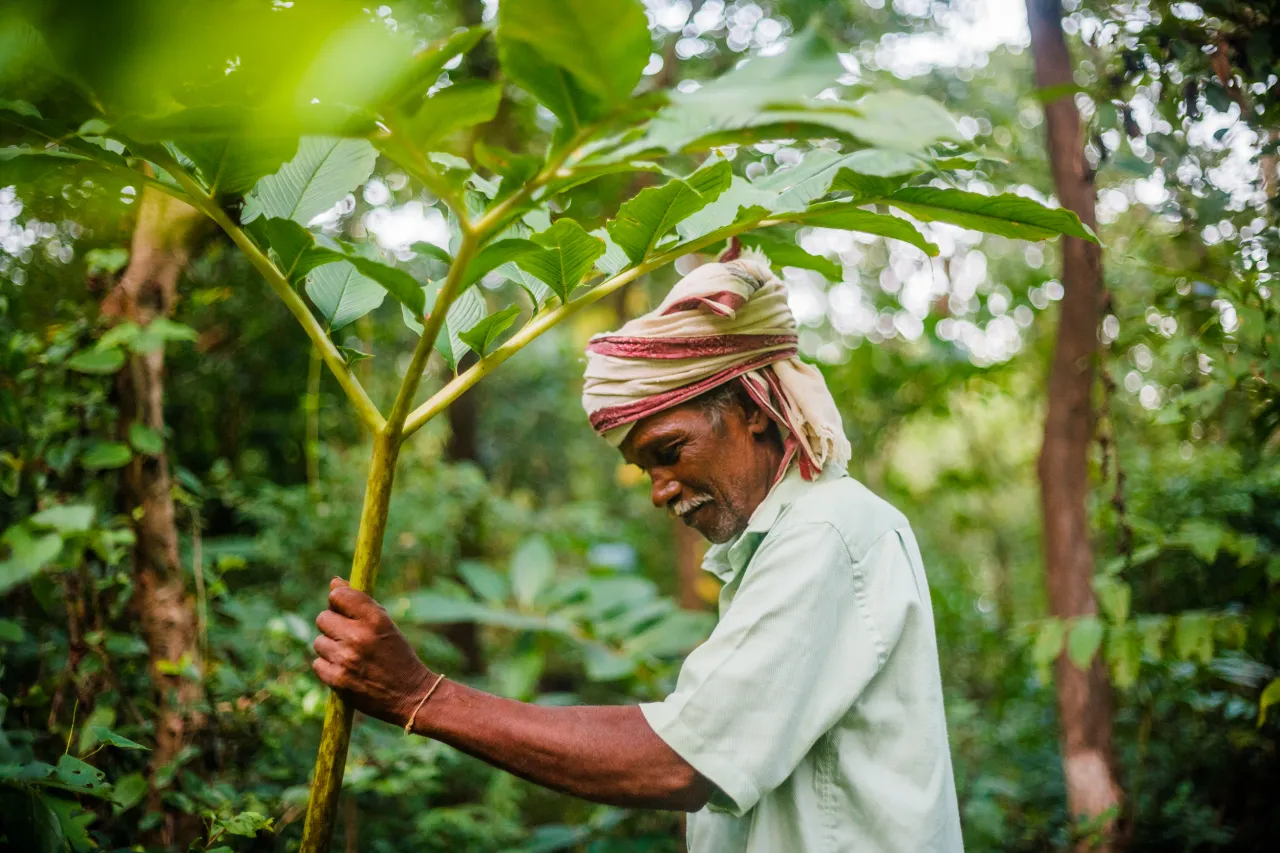
It was in the Sahyadri foothills of the Western Ghats of India – a global biodiversity hotspot – where they ultimately decided to buy land. Initially called ‘Vision Acres,’ it was later renamed ‘Vanvadi’, combining ‘Van’ (forest) and ‘Vadi’ (small village). The founding principles included prohibiting agro-chemicals, maintaining at least 50% tree cover, conserving water, and promoting biodiversity to ensure positive impacts. Ethical dealings with locals and prioritization of simple, need-based living over commercial pursuits were also central values.
Vanvadi was never meant to be a speculative project. Members could exit the cooperative initiative, but their rights could be transferred only to existing or new approved members, safeguarding the project’s vision and continuity.
The ‘Core Group’ members of Vanvadi are: Vinita & Bharat Mansata, Sarita & Ganesh Nochur, Divya Bhatia, Sraddha Mansata, Mona Patrao, Rashmi Palkhivala, and Phiroze Palkhivala, as authorized by the larger group of members.
The Emergence of Vanvadi as a Learning Hub
Vanvadi gradually evolved as an eco-versity, focused on deepening ecological understanding, sustainable living, and natural farming. The transformation began about seven years ago with the construction of a community house, replacing the small, simple hut they had dwelt in initially. This allowed the members to host more educational programmes.
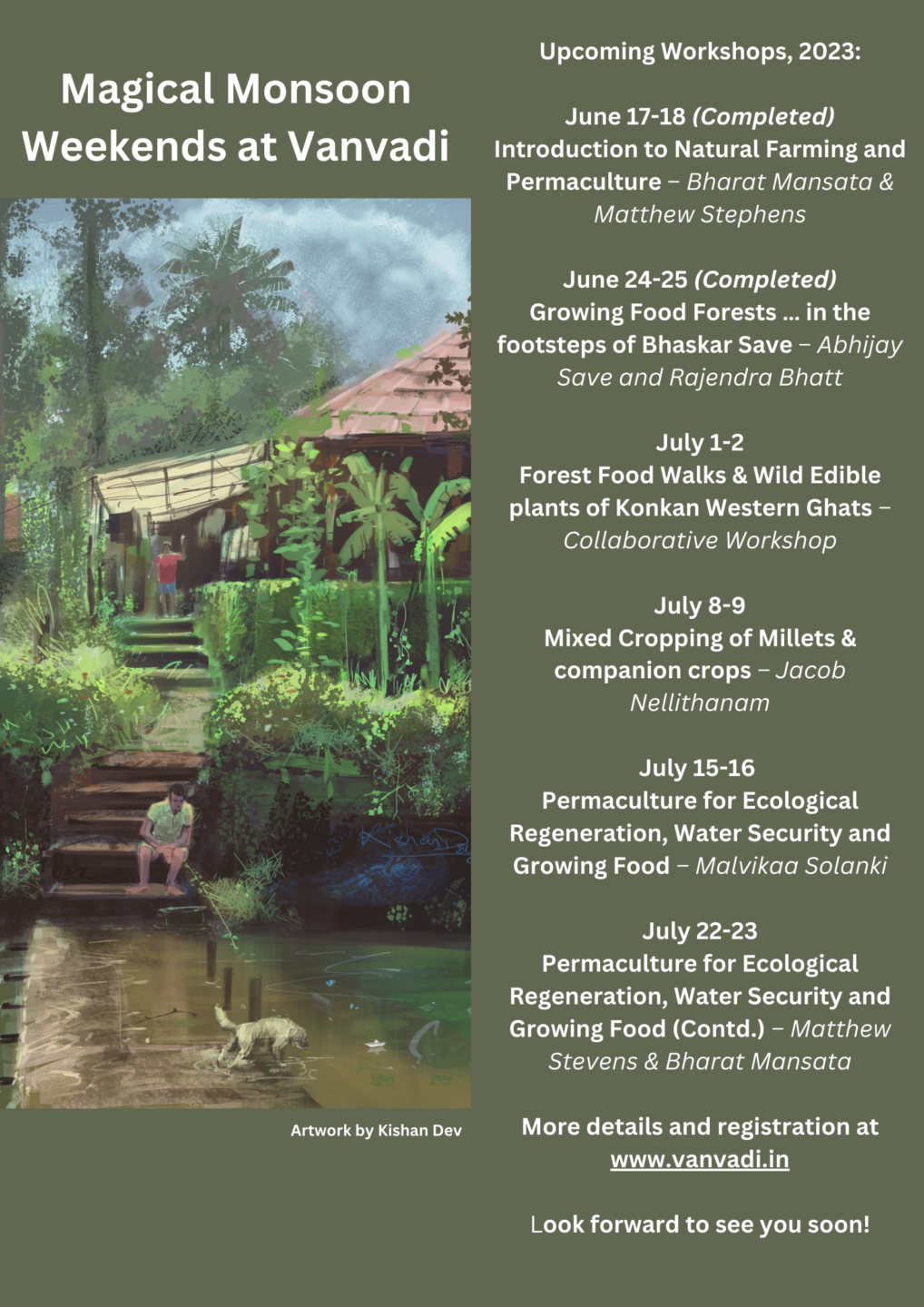
One of Vanvadi’s hallmark events, the Van Utsav (Forest Festival), has now been hosted annually in October for 19 years. The Van Utsav is a “multi-generational, open agenda learning celebration of nature and community”, with workshops, activities, and discussions volunteered by the participants themselves. The ethos of shared, collective responsibility has been central to the Van Utsav gatherings and other events held at Vanvadi.
In the early years, the workshops and gatherings at Vanvadi were occasional, and lasted only for a few days each. In 2021 the name Vanvadi Forest Ecoversity was first adopted; this marked the launching of a three-month educational programme with a dozen or so local, village youngsters, and an equal number of urban youth. A few of the Vanvadi members themselves served as resident teachers/facilitators. Over the weekends, external speakers were also invited to share their experience on diverse subjects, including: natural farming, rainwater harvesting, aspects of flora and fauna, eco-friendly construction, sustainable livelihoods, and related topics. During those weekends, others who were not part of the three-month programme, were invited to attend as well.
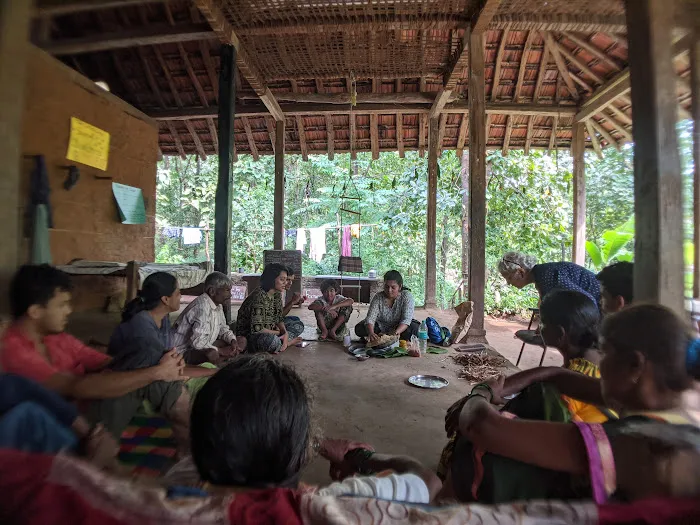
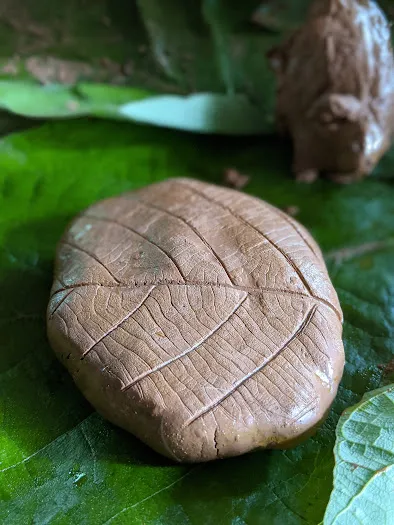
In more recent years weekend workshops have been held fairly regularly at Vanvadi. Twice or thrice each year, the community has also hosted learning action camps — for making fire-breaks, planting trees, and building small earth-bag dams. In November, 2024, a hands-on workshop focused on constructing a mud house. In January 2025, an eight-day course was held on ‘Agro-ecology, Natural Farming and Permaculture’, featuring several experienced guest speakers. All such events are generally announced on the website and social media platforms.
Learners, Pedagogies & Research
Vanvadi is a space for intergenerational learning, with children, youth, and adults of all ages, though most are young, urban adults between 20 and 50. A significant part of their learning is experiential. Encounters and observations on the forest trail leave lingering memories. Much is learnt through walks, talks and shared work — life’s “humble, invisible pedagogies.”
The workshops and courses at Vanvadi strive to balance structure and spontaneity. While these have often been in English, those in Marathi or Hindi — on farming, water, forest, biodiversity — have attracted the local, tribal youth as well. Now, some of the youngsters are themselves inspired to promote the path of ecological regeneration with their fellow village youth.
A Vanvadi member relates, “Based on the indigenous knowledge of local adivasi elders — and supported by numerous researched, published references —we have compiled a thick file of documentation of forest species, titled The Botanical Wealth of Vanvadi. We have also documented much of the fauna of Vanvadi.
“We have aided ground water recharge primarily by enhancing forest cover, which leads to more leaf and bark litter on the forest floor, leading to the increased presence and tunneling action of earthworms and other soil dwelling creatures, and thus better absorption of water. We harvest rain run-off as surface storage water bodies on stream beds through low-cost earthworks like small dams built with onsite rocks.
“We also learnt how to check the spread of summer forest fires by hands-on doing, guided by senior local adivasis. This entails clearing broad strips of dry leaf litter on the forest floor — to cut off the spread of ‘carpet fires.’ Similarly, we learnt sustainable house construction with locally available materials through active engagement, supported by experienced guidance.”
The vital themes that land-based learning communities urgently need to address are: checking soil erosion and degradation; enhancing vegetation, protecting biodiversity, enhancing fertility and absorption/storage of rain; becoming self-reliant in growing food and building homes; establishing diverse ecologically sustainable and satisfying livelihoods; and evolving methods for convivial self-governance and effective resolution of interpersonal conflicts.
The Rebirth of the Forest
Over the past three decades the land has regenerated remarkably into a dense, tall forest, teeming with biodiverse life forms and more than 80,000 trees!
The forest is now home to more than 120 traditionally recognized useful species of plants, 52 of which provide edible forest foods at different times of the year. Mangoes, jambul, mahua. and berries like karvanda (Carissa carandas) yield fruit in the summer, while the start of the monsoon brings a bounty of fresh, tender forest vegetables such as the local delicacy, shevla (highly valued in the area), and numerous others. Additionally, an abundance of edible, wild (uncultivated) tubers can be sourced in the forest. Though several of these tubers need special knowledge in their identification and preparation, they have been life-savers to the local people and the landless in past years of agricultural failure.
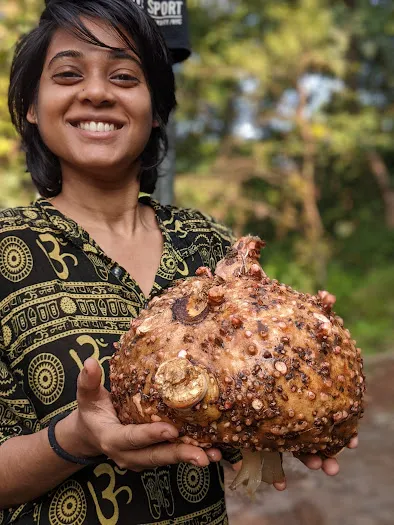
Every year, in early monsoon, Vanvadi hosts Forest Food Foraging Walks, usually guided by adivasi women elders. Vanvadi is also rich in timber, medicinal plants, edible tree gums, biofuels, botanical pest repellants, natural dyes, and plants used for traditional crafts like making leaf plates and baskets. Of course, the forest provides too an abundance of animal fodder, fibre, and firewood.
In addition to the numerous benefits of diverse forest produce to the local people and forest-inhabiting creatures, of particular great importance are the critical “ecosystem services” of the forest — to harvest solar energy, sequester carbon, and purify the air we breathe. Soil-dwelling creatures like earthworms, ants, and other organisms,break down organic matter (like leaf litter, dry twigs and branches, decomposing roots), returning them to the soil, making it nutrient-rich and porous like a sponge. This, in turn, soaks in rain water and helps recharge wells and borewells, enabling all neighbouring downstream villages to source pure water for their drinking and cooking needs.
Today, Vanvadi stands as a living example of how people can come together to regenerate land, following the ‘zero chemical and minimum intervention’ principles of natural farming and forest regeneration, for the co-evolution of humans and the environment. Its story continues to inspire those who seek to reconnect with the earth and live in harmony with nature.
Learning from Traditional Knowledge
Vanvadi’s journey is deeply informed by traditional wisdom and the knowledge of
indigenous communities. In 2014 one of the founders attended a tribal food festival in the Niyamgiri foothills of Odisha, where adivasi women from over a hundred neighbouring villages displayed several hundred species of food plants, both cultivated and uncultivated. This experience underscored the wealth of indigenous knowledge and the importance of learning from those who live in harmony with nature.
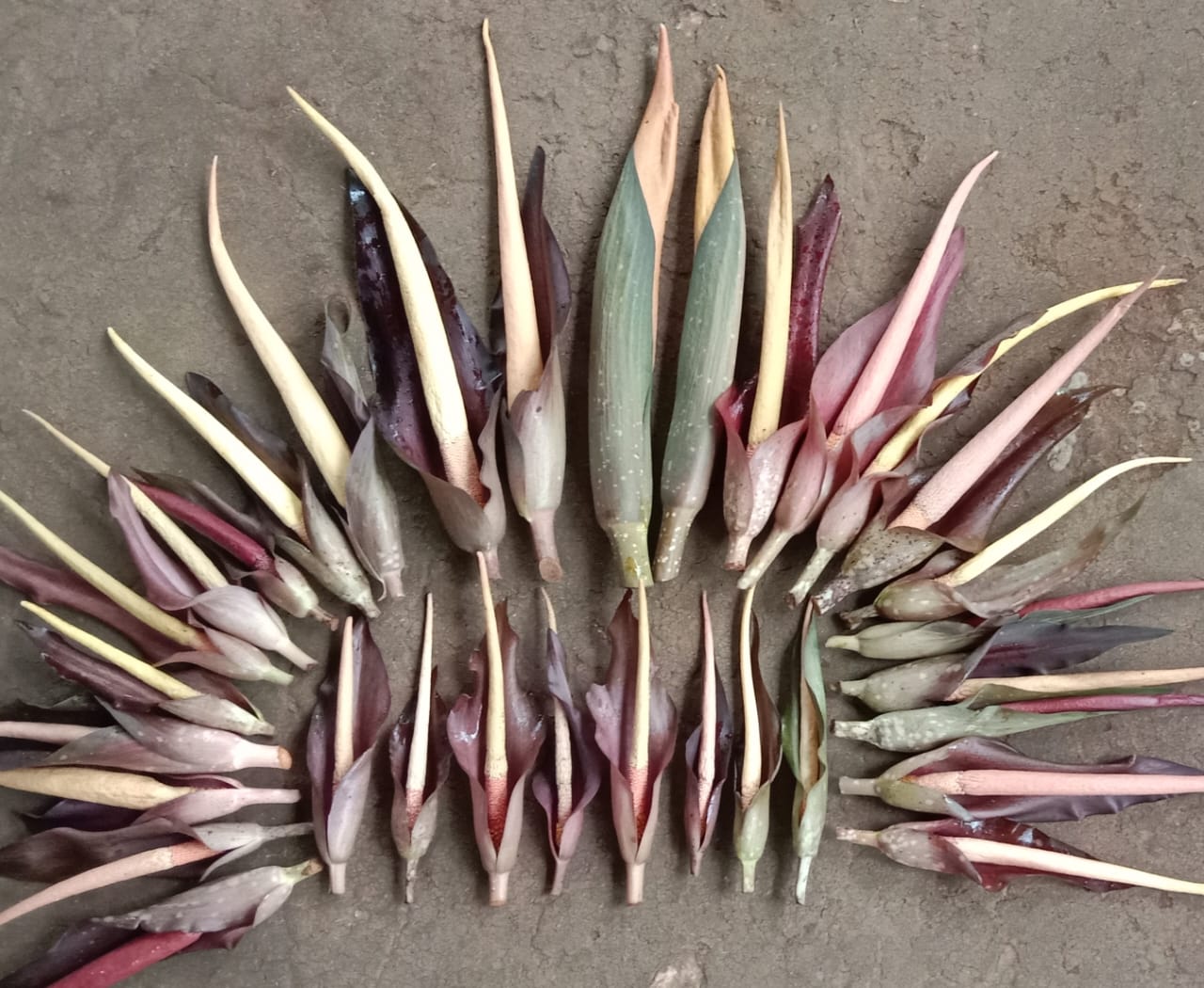
In 2015 a similar experience at a National Forest Food Festival in Delhi — where Vanvadi also participated along with a few local adivasis of its area — revealed over 1,500 species of wild, edible plants on display, further emphasizing the incredible biodiversity that thrives when ecosystems are allowed to flourish with minimum external disturbance. This reinforced the principle that to truly understand sustainability in food and farming, one must learn from farmers and indigenous, forest-dwelling communities who have first-hand knowledge of diverse terrain and habitats, as there can never be a one-size-fits-all approach to food and agriculture.
Future Aspirations
Looking ahead, Vanvadi’s aspiration is to grow into a forest eco-village community and learning alliance that protects and further regenerates the health and biodiversity of the land. The aim is to create a space where people live in harmony with one another, learn from nature, and share knowledge with others. The decentralized model allows individuals the freedom to pursue their interests — whether it is growing wholesome food, sustainable architecture, natural healing, meditation, or the arts and crafts — while ensuring their activities align with the ecological principles that guide Vanvadi.
As Vanvadi Forestversity continues to grow, its mission remains clear: to provide a guiding example of sustainable living for the youth and future generations. The community hopes to inspire others to live in balance with nature, foster connections, and share their knowledge with the world.
The aspirations soon turned into reality when we witnessed people taking a foot forward, not just showing interest but also turning it into actions with their presence at Vanvadi Forestversity:
- Madhu Phani first visited Vanvadi during a Vanotsav in 2015, accompanied by Vivek Oak. After returning, he reported, the experience left him so thrilled and overjoyed that he eagerly shared photos and stories with his office colleague (and future life partner), Sampada. According to Sampada, that was the first time they had actually spoken at the office. Inspired by Madhu’s enthusiasm, Sampada requested to join him on the next visit. They returned together during a house-building initiative at Vanvadi — an experience Sampada later described as the moment she felt a deep sense of connection and safety in Madhu’s company. They now live on their own farm.
- Two other couples — Leslie and Mayuree, along with Varun and Purvi Pitkar — also deepened their bonds at Vanvadi and made a conscious decision to shift from city life to a rural setting.
- Actor Raj Verma, along with several other urban youth, was similarly inspired by the Vanvadi experience. Around four to five years ago, Raj purchased a small plot of land approximately one kilometre from Vanvadi. He hopes to formally join the Vanvadi community in the near future.
- Among rural and tribal youth, a prominent example is Daulat Pardhi, who worked at Vanvadi for several years before deciding to initiate similar work independently on his family land in the nearby adivasi village of Chinchwadi.
- Another noteworthy example is Suresh Bhagat, a young man in his mid-20s from Chinchwadi, who has been working at Vanvadi for more than four years.”
Several other rural adivasi youth — particularly those who participated in a three-month course at Vanvadi a few years ago — were also significantly influenced. They said that their appreciation for traditional, ecological, and socio-cultural tribal ways of life grew stronger. For many rural youth, the need to earn a monetary income to meet everyday needs remains a primary concern. Nevertheless, the core mission of Vanvadi Forestversity continues to resonate deeply, inspiring youth to reconsider their lifestyle choices.
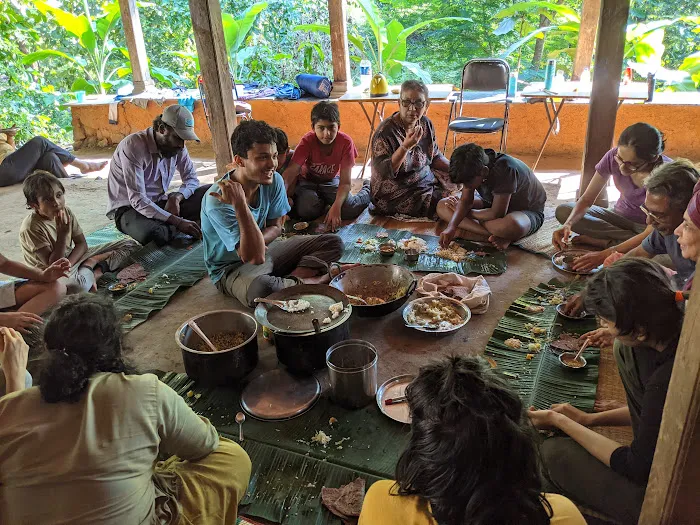
Patrichia D’cruze, a thinker, listener, and believer, is passionate about writing, which she believes liberates her soul and in turn gives her the opportunity to explore various avenues in her day to day life and to give creativity its due importance. She is a public speaking coach and a prizewinning poet and story writer. “”Love, passion, zeal mixed together create Magic.” Contact her by email or @writerpatrichia, @patrichiawrites


